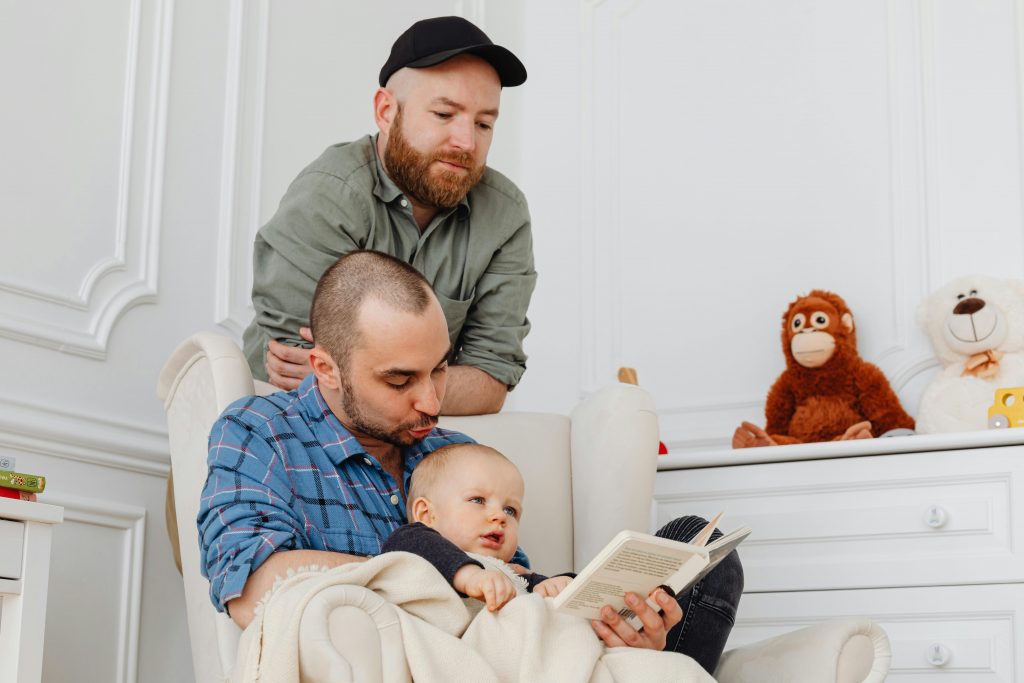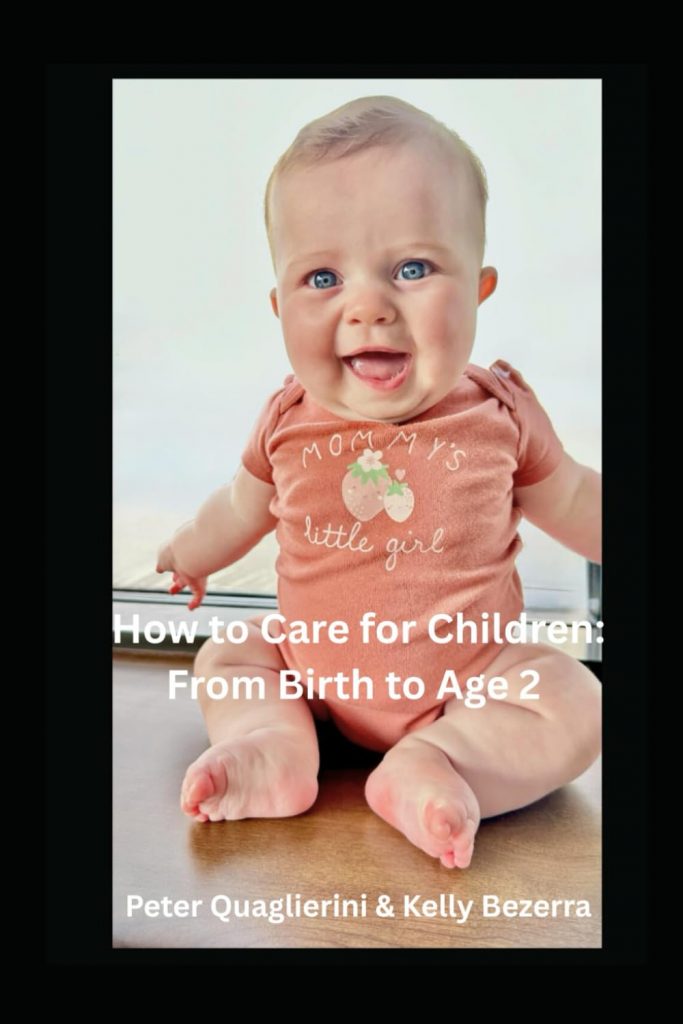Talking to your baby from the earliest days is more than just sweet moments. It builds their brain in ways that shape their entire future. When you engage in conversation during diaper changes, feedings, or playtime, you’re actively supporting their language acquisition and emotional development.
Babies are constantly learning. They may not speak yet, but they absorb words, tones, and facial expressions with remarkable efficiency. Research shows that infants who are exposed to rich verbal environments tend to develop stronger vocabulary and communication skills later in life.
Simple conversations, even one-sided ones, make a significant difference. You might describe what you’re doing (“Now we’re putting on your socks”) or respond to your baby’s coos and babbles. These moments help infants connect sounds with meaning, creating neural pathways that support future learning.
It’s not just about language acquisition. Verbal interaction also builds emotional bonds. Your voice provides comfort, security, and stimulation. It helps babies feel seen and loved, which is essential for healthy emotional development.
Even if your child doesn’t respond with words, they’re learning constantly. You can use songs, stories, or narrate your daily routines. Eye contact and smiling reinforce the connection, helping your child feel safe and engaged.
Make this a habit every day. Your baby’s brain is growing fast, and your voice is a key part of that growth. With time, you’ll notice how your baby begins to understand, respond, and eventually communicate back, all thanks to those early interactions.

🍼 Remember: Every word you say now helps shape your child’s future.
📌 Practical Tips for Daily Interaction
- Use a calm and happy tone
- Make consistent eye contact
- Describe your actions (e.g., “Now I’m changing your diaper”)
- Name objects and feelings
- Read simple books aloud
- Repeat and expand on your baby’s sounds
1. Emotional Bonding: Creating Unbreakable Connections
When you speak with your baby, you’re doing far more than sharing information. You’re building an emotional bridge that strengthens your parent-child relationship. The soothing rhythm of your voice provides comfort and security, helping your baby feel loved and protected in their new world.
This emotional connection formed through conversation becomes the cornerstone of your child’s ability to form healthy relationships throughout life. Babies who experience regular verbal interaction with their parents develop stronger attachment bonds and demonstrate greater emotional resilience as they grow.
Read more: Essential Benefits of Talking to Your Baby: A Complete GuideResource: 📖 Reading Rockets (education and children’s reading)
2. Language Development: Setting the Stage for Success
The benefits of verbal interaction extend far beyond the immediate moment. Children who are exposed to rich verbal environments from birth typically:
Develop larger vocabularies faster – Regular conversation exposes babies to diverse words and concepts, giving them a significant head start in language acquisition.
Demonstrate superior communication skills – Early verbal interaction helps babies understand the back-and-forth nature of conversation, preparing them for effective social communication.
Show enhanced listening abilities – Consistent exposure to speech patterns helps babies develop crucial listening skills that support learning throughout their educational journey.
Excel in academic settings – The language foundation built through early conversations often translates to better performance in reading, writing, and overall academic achievement.
Try this toy: LeapFrog Fridge Phonics Magnetic Letter Set, Yellow
Resource: CDC – Milestones for Baby Language and Learning
3. Cognitive Benefits: Boosting Brain Power
Speaking with your baby stimulates critical thinking development from the earliest stages of life. When you describe your daily activities, read stories, or simply narrate what you’re doing, you’re helping your baby make connections between words and the world around them.
This verbal stimulation enhances memory formation, problem-solving abilities, and logical thinking skills. Research demonstrates that babies who receive regular verbal input score higher on cognitive development assessments and demonstrate advanced reasoning abilities as toddlers.

4. Social Skills: Building Tomorrow’s Leaders
Regular conversation with your baby lays the groundwork for exceptional social skills. Through verbal interaction, babies learn about turn-taking, emotional expression, and social cues that will serve them throughout their lives.
Children who experience rich verbal environments from birth often become more confident communicators, better leaders, and more empathetic individuals. They learn to read social situations more effectively and respond appropriately to various social contexts.
Age-Specific Communication Strategies
Talking to your baby effectively requires adapting your approach to your child’s developmental stage. Understanding what works best at each age maximizes the benefits of verbal interaction.
Newborns (0-3 Months): The Foundation Stage
During the newborn period, your voice provides crucial comfort and security. Babies at this age respond primarily to tone and rhythm rather than specific words.
Effective strategies for newborns:
- Use a higher-pitched, melodic “parentese” voice (studies show babies prefer this vocal style)
- Maintain close face-to-face contact (8-12 inches, the distance babies can focus best)
- Respond immediately to coos and gurgles with verbal acknowledgment
- Describe sensory experiences (“This water is warm,” “Your blanket is soft”)
- Sing simple lullabies and nursery rhymes (the repetition supports pattern recognition)
What happens in their brain: Neural connections are forming rapidly. Your voice helps establish language centers in the brain, even though comprehension won’t emerge for months. The emotional tone of your voice activates attachment systems, building the foundation for secure bonding.
3-6 Months: The Interactive Phase
Babies become more socially engaged and begin experimenting with vocal sounds. This is when talking to your baby becomes genuinely interactive.
Strategies for this stage:
- Engage in “conversational turn-taking” (say something, pause for baby’s response, respond to their sounds)
- Introduce object names during play (“This is your ball,” “See the dog?”)
- Use exaggerated facial expressions to accompany words
- Respond enthusiastically to babbling (this encourages more vocal experimentation)
- Read board books with simple, repetitive text
- Narrate daily routines in detail
Developmental milestones: Babies begin connecting sounds with meanings. They’re learning that communication has a back-and-forth pattern. Your responses teach them that their vocalizations have power and meaning.
6-12 Months: The Language Explosion Preparation
This critical period sets the stage for first words. Babies understand far more than they can express, making rich verbal input especially important.
Advanced strategies:
- Label everything (“That’s a tree,” “You’re eating carrots”)
- Use simple questions and provide the answer (“What’s that? It’s a cup!”)
- Introduce action words (“We’re walking,” “Daddy is driving”)
- Expand on baby’s attempts at words (baby says “ba,” you say “Yes! Bottle!”)
- Read multiple books daily, encouraging baby to point and engage
- Create word-rich environments (talk constantly during activities)
What’s developing: Receptive language (understanding) grows exponentially. Babies are connecting words with objects, actions, and concepts. The neural pathways for speech production are forming, even though expressive language lags behind comprehension.
12-24 Months: The First Words Period
First words emerge, and vocabulary grows rapidly. This is when the investment in early verbal interaction pays visible dividends.
Optimization strategies:
- Ask open-ended questions (even if baby can’t fully answer)
- Provide correct models without correction (“You said ‘wawa’! Yes, water!”)
- Introduce descriptive words (colors, sizes, textures)
- Use complete sentences, not just single words
- Engage in pretend play with verbal narration
- Read books with more complex storylines
Visible progress: Children with rich early verbal environments often speak in sentences earlier, use more varied vocabulary, and show advanced understanding of complex language structures.
Common Mistakes Parents Make (And How to Avoid Them)
Even well-intentioned parents sometimes approach infant communication in ways that reduce its effectiveness. Understanding these common pitfalls helps you maximize the benefits of talking to your baby.
Mistake 1: Using Only “Baby Talk”
While parentese (high-pitched, melodic speech) is beneficial, completely avoiding proper language limits learning opportunities.
The solution: Use parentese for emotional engagement but also model correct grammar and varied vocabulary. “You’re such a good baby!” (parentese) followed by “Now we’re going to read a fascinating book about animals” (proper language) provides optimal input.
Mistake 2: Talking at Baby Instead of With Baby
One-way monologues don’t teach the interactive nature of communication as effectively as turn-taking conversations.
The solution: Pause after speaking. Wait for baby’s response (coo, gurgle, gesture). Respond to their communication attempts as if they said something meaningful. This teaches conversation structure.
Mistake 3: Screen Time as a Substitute
Educational videos cannot replace live human interaction for language development. Babies learn best from responsive human communication.
The solution: Minimize screen time for children under 2. When screens are used, co-view and narrate what’s happening, making it an interactive experience rather than passive consumption.
Mistake 4: Speaking Only During “Teaching Moments”
Limiting conversation to formal learning times reduces the total verbal input babies receive.
The solution: Narrate your entire day. Talk during diaper changes, car rides, cooking, cleaning, everything. These natural contexts provide rich learning opportunities.
Mistake 5: Correcting Instead of Modeling
Pointing out baby’s pronunciation errors can discourage verbal attempts.
The solution: Model correct production without correction. If baby says “pasketti,” enthusiastically respond “Yes! Spaghetti! We’re eating spaghetti!” This provides the correct model while validating their communication attempt.
The Neuroscience: What Really Happens in Baby’s Brain
Understanding the scientific mechanisms behind language development helps parents appreciate why talking to your baby is so transformative.
Synaptic Formation and Pruning
During the first three years, babies’ brains create synaptic connections at an astounding rate, about one million per second. Verbal interaction directly influences which connections strengthen and which are pruned away.
How it works: When you speak to your baby, multiple brain regions activate simultaneously: auditory processing areas, language centers, memory systems, and emotional regulation networks. Repeated activation strengthens these connections, making language processing more efficient.
The critical window: Neural plasticity is highest during infancy. The language exposure your baby receives now literally shapes brain structure in ways that cannot be fully replicated later.
The “30 Million Word Gap”
Research by Hart and Risley revealed that by age 3, children from high-verbal-input families had heard approximately 30 million more words than children from low-verbal-input families.
The long-term impact: This early word exposure gap correlated with significant differences in vocabulary, reading ability, and academic achievement through elementary school and beyond.
Your power to change outcomes: Increasing your daily conversation with your baby can close this gap, providing equal opportunity for language development regardless of socioeconomic factors.
Emotional Regulation Networks
The soothing quality of parental voice activates oxytocin release and helps regulate baby’s stress response systems.
Building resilience: Babies who receive responsive verbal interaction develop better emotional regulation capabilities. Your calm narration during stressful moments (doctor visits, separation) teaches babies that they can trust you to help them manage difficult emotions.
Creating a Language-Rich Environment
Maximizing the benefits of talking to your baby extends beyond direct conversation. The entire environment can support language development.
Environmental Strategies
Minimize background noise: Turn off televisions and reduce background music when interacting with baby. Babies learn language best in quiet environments where they can focus on your voice.
Create conversation zones: Designate specific areas for verbal interaction (reading corner, mealtime table, changing station with mobiles and pictures to discuss).
Use environmental print: Label objects around your home. Even before baby can read, seeing words associated with objects reinforces language concepts.
Invite guests: Exposure to multiple speakers (grandparents, friends) helps babies learn that language is a universal human tool, not just something mommy and daddy do.
Daily Routine Integration
Morning routines: “Good morning! The sun is shining. Let’s get dressed. First, your diaper. Now your shirt…”
Mealtime: “You’re eating sweet potatoes. They’re orange and soft. Yummy!”
Bath time: “Splash! The water is warm. Here’s your rubber duck. It floats!”
Bedtime: “Time for sleep. Your pajamas are cozy. Let’s read a story. Goodnight, sweet baby.”
Consistency in these verbal routines provides predictable language exposure that supports learning.
5. Long-Term Academic Success: Investing in Your Child’s Future
The time you invest in verbal interaction today pays dividends for years to come. Children who receive rich verbal input during their earliest years consistently outperform their peers in academic settings, demonstrating:
- Higher reading comprehension scores
- Enhanced writing abilities
- Superior critical thinking skills
- Better classroom participation
- Increased confidence in learning environments
This early investment in communication creates a ripple effect that influences every aspect of your child’s development. From enhanced creativity to improved emotional intelligence, the benefits of early verbal interaction continue to emerge throughout your child’s life.
Practical Tips for Maximizing the Benefits
Start immediately – Begin speaking with your baby from the moment they’re born. Your voice was familiar to them in the womb, and continuing this verbal connection helps ease their transition to the outside world.
Describe everything – Narrate your daily activities, describe what you’re doing, and explain the world around you. This constant verbal input provides rich learning opportunities.
Read together daily – Even newborns benefit from hearing stories. The rhythm and patterns of language in books provide excellent verbal stimulation.
Respond to their sounds – When your baby makes sounds, respond as if you’re having a conversation. This teaches them the interactive nature of communication.
Use varied vocabulary – Don’t limit yourself to simple words. Babies benefit from exposure to complex vocabulary and varied sentence structures.
Be consistent – Make verbal interaction a natural part of every activity throughout the day.
The Science Behind Early Communication
Research consistently demonstrates the powerful impact of early verbal interaction on child development. Studies have shown that:
- Babies can recognize their mother’s voice within hours of birth
- Infants exposed to 20,000+ words per day show significantly higher IQ scores by age 3
- Early language exposure directly correlates with academic performance in elementary school
- Children with rich early verbal experiences demonstrate better emotional regulation
The neural pathways formed during these early conversations create the foundation for all future learning. Your voice literally shapes your baby’s brain structure, influencing how they process information, form relationships, and navigate the world.
Conclusion:
Your Voice Shapes Your Baby’s Future
The power of your voice in shaping your baby’s future cannot be overstated. Every conversation, every story, and every gentle word contributes to building a strong, capable, and confident individual.
Verbal interaction is a simple, free, and powerful tool that supports emotional bonding, language skills, and healthy brain development. It requires no special equipment, no expensive programs, just your consistent, loving presence and willingness to communicate.
Start today and make it a habit. Your baby’s developing mind is ready to absorb everything you share. Every word counts, and the benefits will last a lifetime.
Conclusion: Your Voice Helps Your Baby Grow
Talking to your baby is a simple, free, and powerful tool. It supports emotional bonding, language skills, and healthy infant brain development. Every word counts start today and make it a habit!
Read more: Essential Benefits of Talking to Your Baby: A Complete GuideIncredible Alphabet Teaching Secrets That Transform Babies Into Early Readers
Looking for comprehensive guidance on caring for your baby? Our book ‘How to Care for Children: From Birth to Age 2’ combines professional nanny experience with evidence based child development research. Written by Kelly and Peter, this guide provides clear, reliable advice rooted in real world childcare. Available in English, Spanish, and Portuguese on Amazon.
Click the link below your preferred language to get your copy!

1. Can newborns really benefit from conversation?
Yes, absolutely. Even newborns respond to the rhythm and melody of your voice, building early brain connections that support future learning. Research shows that babies recognize their mother’s voice within hours of birth and prefer it to other voices. While newborns don’t understand words yet, vocal interaction activates language centers in their developing brains, creates essential neural pathways, and strengthens emotional bonding through familiar, comforting sounds.
2. What if my baby can’t respond verbally yet?
This is completely normal and expected. Your baby’s brain is listening and learning constantly, even without verbal responses. Receptive language (understanding) develops months before expressive language (speaking). Babies are absorbing vocabulary, grammar patterns, conversational rhythms, and emotional tones long before they can produce words themselves. Continue talking; the foundation you’re building now will support future communication.
3. How much should I speak with my baby?
Aim for frequent, natural conversation throughout the day during diaper changes, feeding, playtime, and daily routines. Research suggests babies benefit from hearing 20,000+ words daily. There’s no maximum limit to beneficial verbal interaction. Quality matters too: use varied vocabulary, proper grammar, engage in responsive turn-taking, and create genuine conversational experiences rather than just background noise.
4. Does it matter what I say?
While the quantity of words matters significantly, quality is equally important. Use varied vocabulary beyond simple words, employ proper grammar to model correct language structures, engage in meaningful narration of activities and environment, respond to baby’s sounds and gestures conversationally, and read books with rich, complex language. Avoid constant “baby talk” alone; mix playful parentese with proper adult language for optimal development.
5. What if I feel silly talking to someone who can’t respond?
This feeling is extremely common among new parents, but remember that your baby is absorbing every word even without verbal responses. Consider it essential practice for future conversations and focus on the tremendous developmental benefits you’re providing. Many parents find it easier to narrate activities (“Now I’m folding laundry”) or read books aloud rather than creating artificial conversations. The key is consistent verbal input, regardless of format.
6. When do babies start understanding what I’m saying?
Babies begin understanding simple words around 6-9 months, though this varies significantly. By 12 months, most babies understand 50+ words even if they can only say a few. Comprehension develops through consistent exposure: hearing words repeatedly in context, seeing facial expressions and gestures accompanying words, and experiencing responses to their own communication attempts. Continue talking even before obvious comprehension emerges; understanding develops gradually through accumulated exposure.
7. Can too much talking overwhelm my baby?
Generally no, but babies do need periods of quiet rest. Watch for overstimulation signs: turning away, fussiness, decreased eye contact, or falling asleep. Balance verbal interaction with quiet time for processing and rest. The key is responsive communication: engage when baby is alert and interested, allow quiet time when baby signals need for rest. Natural conversation throughout daily activities provides optimal input without overwhelming.
8. Does talking to my baby really affect long-term academic success?
Yes, extensively documented research shows early verbal interaction strongly predicts later academic achievement. Children with rich early language exposure consistently demonstrate higher reading comprehension scores, enhanced writing abilities, superior critical thinking skills, better classroom participation, and increased confidence in learning environments. The Hart and Risley “30 million word gap” study showed that early language exposure differences directly correlated with academic performance through elementary school and beyond.





There are truly some great suggestions on how talking really helps a child reach their potential.
Thank you!